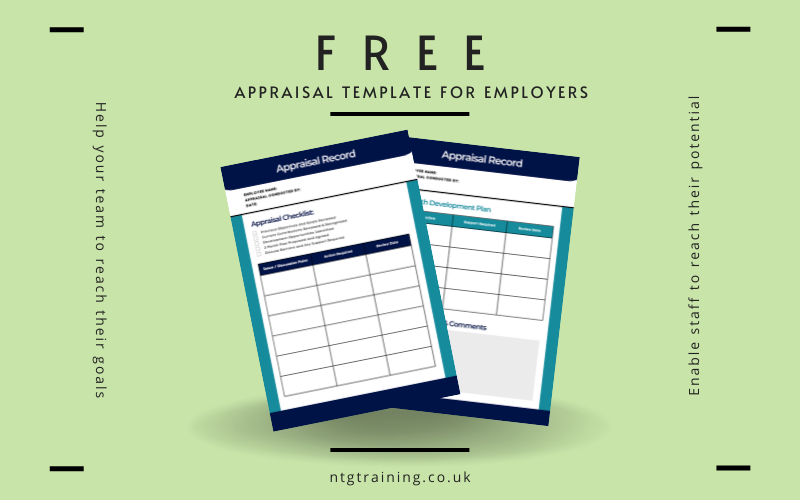Job value and meaning – it’s important. Unless you’ve been living under a rock over the past few pandemic-ridden years, you’d be a bit naïve to be overlooking the current seismic shift in employee sentiment.
No longer can an employer simply rest on their laurels and leave their team members neglected. The modern manager is attuned to their worker’s wants, needs, aspirations and progress at all times.
Really, the key to this is in the title isn’t it – a “manager” should manage. The whole role is about unlocking the highest potential within your team, to ensure you can deliver on goals in the most effective, efficient and easiest way.
However, if the riots and the voices from the anti-work movement are to be believed, the word manager now comes with a somewhat tarnished reputation. The general consensus is, the higher you climb on the corporate ladder, the larger the gap becomes between you and your subordinates.
So don’t be a statistic, go the extra mile. Lead the managerial revolution from the front.
And how can you get started with that? By conducting employee appraisals of course!

What is an Employee Appraisal?
An employee appraisal, also sometimes called a performance appraisal, is a regular review conducted with your employees to assess job performance, productivity, output and the employee’s overall input to a company.
Employee appraisals can be conducted on a yearly basis, or even as often as every month. It’s extremely useful for reviewing a team members performance against their goals and KPIs.
A sales person, for example, might have a monthly review as they will be monitored closely on performance in order to determine performance-related bonuses and incentives.
A general office worker however, may only need checking in with once a month, in order to ensure the company is paying them an adequate salary in relation to their experience and performance.
Although it brings back memories of parent’s evenings in school, it’s actually often requested by employees as it can quickly become a neglected task in most companies.
Overall, it’s a way for employees to obtain feedback on their performance, and for managers to set goals and targets for improvement, or continued success.
How Often Should I Conduct An Employee Appraisal?
How often you conduct an employee appraisal depends on a few things, such as the nature of your company, the timeline for your company’s goals, the employees job role and much more.
Most commonly, employee appraisals are scheduled in for the end of the year. This may be the company year end, or the tax year end. It’s usually a good stopping point to take a moment to assess progress towards the overall company goals.
Many companies choose to run quarterly appraisals, which can be a great way to assess performance in businesses which have seasonal trends or deliverables.
Whenever you choose to do your appraisals, be sure that you stick to your commitments and put appraisals into your diary, as it can demotivate staff and make them feel neglected or even ignored, if promised appraisals are not delivered on.
This is especially important if appraisals are written into staff contracts, and used as determinants for incentives and pay rises.
If you do opt for a yearly appraisal, be sure that communication is clear throughout the year, so that neither party in the appraisal process gets a shock when the yearly meeting comes round! There should be an adequate amount of one-to-one meetings scheduled throughout the year.

Who Should Conduct an Employee Appraisal?
In smaller companies, appraisals are generally performed by the staff member’s line manager, often accompanied by the manager they themselves report to. Directors and owners may also conduct appraisals in small businesses.
In larger companies, the responsibility for employee appraisals often falls upon managers and the HR department. A representative from HR will often oversee the meeting to ensure it is fair, lawful and accurately recorded.
This can be especially useful if the appraisal involves some negative feedback and the employee requires significant actionable goals for improvement. Records kept at appraisals can ensure that if in the worst case, a dismissal is required, then it is within employment law and conducted fairly.
What Should Be Discussed at an Employee Appraisal?
The contents of an employee appraisal should be designed to give team members a roadmap with which they can develop their careers. It’s highly important that managers have adequate training to ensure that appraisals are kept professional. It’s all too easy to bring emotions and personal feelings into the mix!
A manager’s job is to keep to the facts and do their research prior to the appraisal. They should be able to back up any commendations or criticisms with evidence. This is essential for ensuring your team feels like they have been treated fairly.
An employee appraisal might include:
- A review of any past appraisals, and progress on goals set during those meetings.
- An assessment of current work and performance in relation to KPIs set by the company.
- Highlights of successes, and areas for improvement.
- A self-appraisal from the employee, reviewing their personal view of their progress.
- A chance to provide professional feedback, about the employee’s role and any further resources or assistance they may need.
Employers may use conversations, feedback forms and ratings to gather data for employee appraisals. They may also seek feedback from other departments that the employee is often involved with.
What Are The Benefits Of Employee Appraisals?
As we’ve mentioned earlier in this article, the importance of an employee appraisal is on the rise. Many workers who count themselves as part of ‘The Great Resignation’ cited complaints such as senior management in the company not caring or being invested in the employees who complete the day to day running of their business.
Appraisals can be one part of a larger overall strategy for management to invest time in their team members, alongside schemes such as staff training and incentives.
Other benefits may include:
- Mapping out a growth path for your team member’s career.
- Optimising and improving the overall performance and output of your team.
- Increasing staff happiness and loyalty.
- Increasing employee engagement in the overall company strategy.
- Clarifying expectations, goals and areas for improvement, to help staff to be the best they can be.
- Opening conversations, so your employees feel they can communicate effectively through all levels of management.
- Providing important documentation as part of your employee performance monitoring.
- Strengthening team bonds through opening honest conversations before problems become overwhelming.
- Providing a clear pathway towards current projects and goals, so team members know they responsibilities and the part they play clearly.

What Types Of Employee Appraisals Are There?
Although there are some set templates that you can follow for staff appraisals, as long as you are covering the key areas, you can customise your appraisals process as you see fit. Different types of companies may want to tailor their appraisals to tie in with their overall strategy.
That said, if you are new to appraisals, it may be better to start with a standardised format to ensure you are complying with best practice and employment law. Common types of appraisals include:
Ranking Appraisals
This is often used for sales or customer service teams, where you have clear metrics to work upon. Here the management team will take the various evidence they have and rank staff members’ performance against each other. Metrics could include customer feedback ratings, sales value goals or call rates, for example.
The disadvantage of this format could be that individual staff performance is not as clear cut as ‘the person who scores highest here is the best’. That’s why it’s important to assess the results of this appraisal method with a pinch of salt, and as a manager you should be taking a greater deep dive into the data, to understand why staff have scored in the way they have.
For example, a staff member who does not handle as many calls in a call centre may have a low rate, but they may have an exceptional customer satisfaction score, and a high value in terms of customer retention.
We recommend that ranking appraisals are conducted carefully for these reasons.
Grading Appraisals
Grading is a simple and commonly used employee appraisal method, that seeks to award individuals with a score based on their performance. This can be anything from colour coding to number rankings, for example:
- A staff member who is awarded a 1 may be an overachiever, going above and beyond their duties.
- A staff member who is awarded a 3 may be performing at an average level, but have some areas for improvement.
- A staff member who is awarded a 5 may be underperforming and require a thorough improvement plan.
This can be a useful method for making sure you don’t pit staff against each other in competition, but instead assess their individual merit, whilst taking into account their unique strengths and weaknesses.
It also ensures there is a standardised unit of measurement for performance, which can be a problem when using the ‘Ranking Appraisal’.
Take into consideration, if Employee A ranks 5th on a high-volume year where all of your team are performing well, but then rank #1 on the following year, where the overall quality of output has decreased, it may not necessarily mean they are performing better in year 2.
Management by Objective
The first two employee appraisal methods we discussed above are considered somewhat outdated in some modern management thought leadership. A ‘Management by Objective’ appraisal is often considered a better approach these days.
This type of appraisal involves engagement from both the manager and the employee, in order to set SMART goals and objectives together.
This is often received better by employees, as it takes into account their personal goals, strengths and aims. The idea is, that you are better off working with your employees to reach your goals, rather than pushing them in a direction that may make them unhappy, or tempted to leave.
The Management by Objective method is an ongoing process. An employee who has a negative appraisal using one of the previously stated methods may leave their meeting feeling negative and unmotivated. However, an employee who leaves with set goals and objectives has a mission and a purpose.
This method also encourages employees to self-assess, become aware of, and buy into, their own areas for improvement.
Trait and Behaviour Appraisals
In some customer-facing roles, it’s important that an employees personability and attitude are assessed. This is particularly important for call centres, nursing teams and hospitality for example.
The problem is, assessing someone’s outward demeanour can be incredibly demotivating for staff. Firstly, because the demeanour is subjective. One customer may enjoy an employees personality, whereas another may not, so it can be difficult to judge. Especially when you take into consideration the differences between generational, regional or socio-economic attitudes.
Not only that, but in industries such as customer service and hospitality, staff may be burdened with a low wage, stressful working conditions or difficult customers.
Our advice is, if your industry depends on the traits and behaviours of your team, your priority should be in obtaining staff feedback in order to give them the greatest possible starting point for meeting goals on their attitude.
360 Degree Appraisals
The gold standard for an employee appraisal is the 360 degree approach. This is designed to combat the disadvantages of the appraisal types we have previously discussed here.
The 360 Degree staff appraisal encompasses taking feedback from all of the stakeholders involved with an employees day-to-day job. This may include customers, other departments, managers and even their subordinates.
This ensures there are no overriding biases and personal opinions coming into play.
If an employee receives feedback from several sources, they can quickly identify consistencies in constructive criticism and praise, taking the stress away for those who may feel bullied or overwhelmed by a negative one-to-one assessment.
Much like management by objective, 360 degree appraisals are an ongoing process which should become part of your company culture and processes. They shouldn’t be neglected, and should be intertwined with your regular communication and feedback.

Best Practice Tips for Employee Appraisals
Follow our guide below to ensure you are conducting your employee appraisals to the highest standards:
- Conduct a minimum of one appraisal per year per staff member, but ideally more regularly.
- Invite a member of HR or a senior manager to the appraisal to ensure they have an overview of staff performance at every level of the organisation.
- Assess past and present performance, and use evidence and facts to ensure a fair review.
- Set achievable, SMART targets and goals based on areas for improvement.
- Ensure records are kept of the appraisal, and that employees have access to the records kept about them.
- It’s essential that all managers who conduct appraisals have training to do so, and know to keep the atmosphere professional.
- Appraisals should not be used to air grievances, or to judge staff members unfairly. They should not be about personal relationships – they are about performance.
Free Employee Appraisals Template
Now you know the theory, why not get started? We’ve created a free, downloadable, printable Employee Appraisals template that you can use for your business.
To get your copy, simply click below. You only need to sign up to our mailing list, then you’ll get instant access to the free download.





